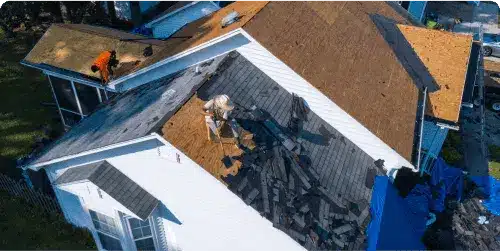Properly disposing of hazardous waste is a critical responsibility for businesses and industries. Understanding the specific requirements for renting a dumpster for hazardous waste can seem daunting, but with the right information, the process becomes significantly more manageable. This comprehensive guide breaks down the essential aspects of hazardous waste dumpster rentals, ensuring you navigate the process with confidence and compliance.
What Types of Hazardous Waste Can Be Disposed of in a Dumpster?
Hazardous waste encompasses a broad range of materials posing potential threats to human health and the environment. Before renting a dumpster, accurately identifying the type of hazardous waste is paramount. Improper disposal can lead to severe legal and environmental consequences. Waste characterization, a critical first step, involves identifying the physical and chemical properties of your waste to ensure proper handling and disposal. This process helps determine the appropriate container and disposal method. Failure to accurately characterize waste can result in significant fines and legal repercussions.
Common Types of Hazardous Waste
Many materials fall under the hazardous waste umbrella, including but not limited to: corrosive chemicals, ignitable liquids, reactive substances, and toxic compounds. Specific examples include asbestos, lead-based paints, polychlorinated biphenyls (PCBs), medical waste (sharps, pharmaceuticals), and various industrial chemicals. Each requires specific handling and disposal procedures to minimize risks.
Special Handling Procedures
Depending on the hazardous waste type, special handling procedures are critical for safety and regulatory compliance. For instance, asbestos requires specialized removal and containment to prevent airborne fibers from causing respiratory illnesses. Similarly, chemical waste needs careful segregation to prevent unwanted reactions or spills. These procedures are crucial in minimizing environmental damage and protecting worker health.
What Regulatory Compliance Is Needed for Hazardous Waste Dumpster Rentals?
Navigating the legal landscape of hazardous waste disposal requires understanding a complex web of local, state, and federal regulations. These regulations aim to protect public health and the environment by ensuring safe and responsible waste management practices. Ignoring these regulations can result in significant penalties, including substantial fines and even criminal charges. Therefore, thorough knowledge of applicable regulations is essential.
Local vs. Federal Regulations
Federal regulations, primarily overseen by the Environmental Protection Agency (EPA), establish baseline standards for hazardous waste management. However, many states and localities have stricter regulations, requiring additional permits or specific disposal methods. Understanding both federal and local regulations is crucial for compliance. Check with your local environmental agency for specific requirements in your area.
Permits and Licensing Requirements
Depending on the type and quantity of hazardous waste, obtaining permits or licenses might be necessary. These permits often require detailed documentation of the waste stream, disposal methods, and emergency response plans. The application process can be involved and requires detailed information, therefore engaging early with your local regulatory agencies is strongly recommended.
What Are the Safety Procedures for Handling Hazardous Waste?
Safety is paramount when handling hazardous waste. Improper handling can lead to severe health consequences for workers and the surrounding environment. Comprehensive safety protocols, employee training, and the use of appropriate personal protective equipment (PPE) are crucial to mitigate these https://gulfshores-al-36535ax783.lucialpiazzale.com/is-gulf-shores-alabama-walkable-in-2025-your-guide-to-navigating-this-coastal-gem risks. A robust safety plan is vital for ensuring a safe work environment and preventing incidents.
Safety Equipment
Personal protective equipment (PPE) plays a crucial role in protecting workers from hazardous materials. This may include respirators, gloves, eye protection, protective suits, and specialized footwear, depending on the specific hazards involved. Selecting and using the correct PPE is essential for minimizing exposure risks and preventing injuries. Regular inspection and maintenance of PPE are also necessary.
Training for Employees
Thorough employee training is crucial for safe handling of hazardous waste. Training programs should cover hazard identification, proper handling techniques, emergency procedures, and the use of PPE. Regular refresher training is also important to reinforce safe practices and ensure continuous compliance with regulations. Well-trained employees are the first line of defense against accidents and incidents.
What Is the Process of Renting a Hazardous Waste Dumpster?
Renting a hazardous waste dumpster involves several key steps, starting with identifying your waste, determining the appropriate container size, and selecting a licensed waste hauler. Working with a reputable hauler ensures adherence to all regulations and safe transportation of your waste. The rental process generally involves contacting a waste management company, discussing your needs, and scheduling delivery and pickup of the dumpster.
Steps to Rent a Dumpster
First, accurately identify and characterize your waste. Next, determine the appropriate dumpster size based on the volume of waste you expect to generate. Then, select a licensed hazardous waste hauler who can handle your specific waste type and ensure proper disposal. Finally, schedule the delivery, use, and pickup of the dumpster, adhering to all safety regulations and completing necessary paperwork.
Factors Affecting Rental Costs
Rental costs for hazardous waste dumpsters vary considerably depending on factors such as container size, the type of hazardous waste, transportation distance, and the required handling and disposal methods. Obtaining multiple quotes from different licensed haulers is advisable to compare pricing and services. Clearly understanding all associated costs before committing to a rental is crucial.
How Are Hazardous Materials Approved for Disposal?
Proper documentation is crucial when disposing of hazardous materials. This involves waste characterization, the completion of a manifest, and accurate labeling. The manifest acts as a tracking document, ensuring accountability throughout the entire disposal process. Accurate labeling helps prevent accidents and ensures proper handling of the waste materials. This comprehensive documentation is vital for regulatory compliance and demonstrating responsible waste management.
Characterization and Manifest System
The manifest system tracks the hazardous waste from generation to final disposal, providing a clear audit trail. Accurate characterization of the waste is essential for completing the manifest correctly. This includes specifying the waste code, quantity, and any special handling instructions. Inconsistencies or inaccuracies can lead to delays and potential penalties.

Importance of Proper Labeling
Proper labeling of containers is crucial for safety and regulatory compliance. Labels should clearly indicate the contents, potential hazards, and any special handling instructions. Consistent and accurate labeling helps prevent accidents and ensures proper handling throughout the waste disposal process. Failure to label correctly can lead to serious consequences.
What Are the Potential Legal Liabilities Involved?
Businesses and individuals generating hazardous waste bear significant legal responsibilities for its proper disposal. Improper handling or disposal can result in substantial fines, legal action, and even criminal charges. Understanding liability risks and securing adequate insurance coverage are crucial to mitigate potential financial and legal consequences. The severity of penalties can vary widely based on the type and quantity of waste, the severity of the violation, and the jurisdiction.
Understanding Liability Risks
Liability extends to both waste generators and waste haulers. Generators are responsible for ensuring their waste is properly characterized, packaged, and transported by licensed haulers. Haulers are responsible for transporting and disposing of the waste according to regulations. Both parties share responsibilities in ensuring compliance with all relevant regulations.
Insurance Considerations
Adequate insurance coverage is vital to protect businesses from potential liability arising from hazardous waste management. Insurance policies should cover potential cleanup costs, fines, and legal fees associated with improper disposal or accidents involving hazardous waste. It is advisable to consult with an insurance professional to determine the appropriate coverage for your specific circumstances.
Frequently Asked Questions
Q: What happens if you mix hazardous waste?
A: Mixing hazardous wastes can lead to unpredictable chemical reactions, creating more dangerous substances. Always segregate different hazardous waste types to prevent such occurrences.

Q: Do I need a permit to rent a hazardous waste dumpster?
A: Permit requirements vary by location and the type of hazardous waste. Contact your local environmental agency to determine if a permit is necessary.
Q: How do I ensure my hazardous waste is disposed of properly?
A: Partner with a licensed and reputable hazardous waste hauler and maintain meticulous records of all waste generated, handled, and disposed of.
Q: What penalties exist for improper hazardous waste disposal?
A: Penalties can include substantial fines, legal actions, and even criminal charges, depending on the severity and nature of the violation.
Q: Can I rent a hazardous waste dumpster for home use?

A: Hazardous waste dumpsters are primarily for businesses. Contact your local waste management authority to inquire about residential options for small quantities of hazardous waste.
This guide provides a foundational understanding of the complexities surrounding hazardous waste dumpster rentals. Remember, always prioritize safety, comply with all applicable regulations, and engage with licensed professionals for proper waste disposal. By adhering to these guidelines, you protect your business, your employees, and the environment. Contact a reputable waste management company today to discuss your specific needs.